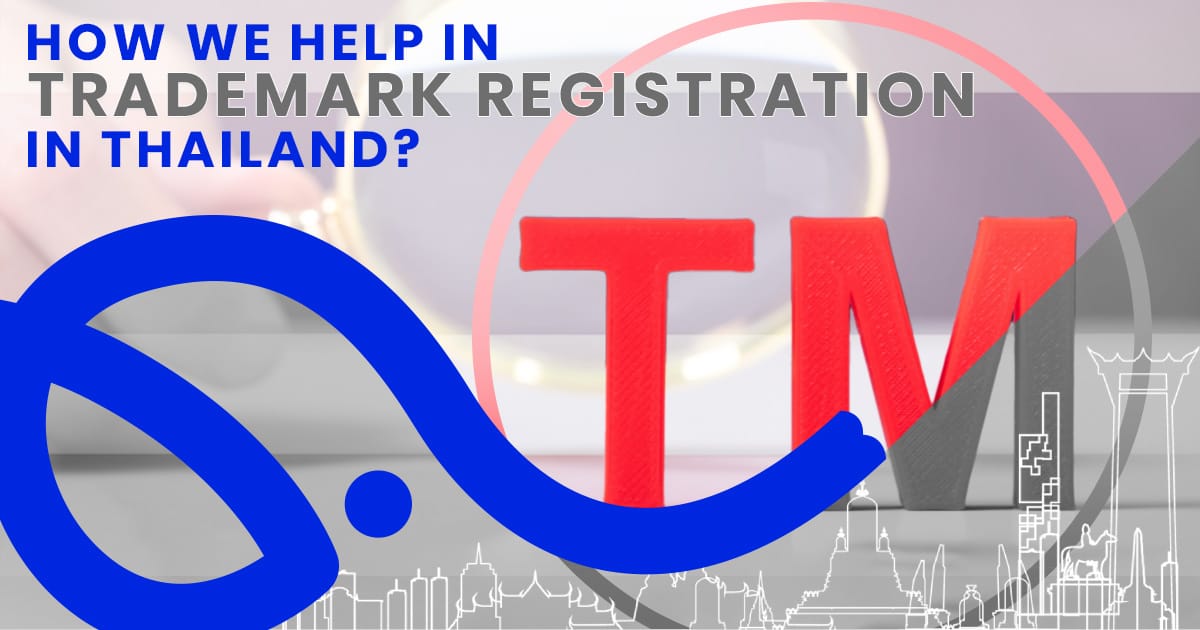Worried about the process to register trademarks in Thailand? The worry can be natural and manifold if you are a Foreigner and in the process of setting up your business in Thailand. Go through this article to know about the most critical aspects of Trademark Registration in Thailand in a simplified way.
On July 28, 2016, the current version of Thailand’s Trademark Act went into effect. Multiple-class filings, international trademark registration, new procedures for calculating official fees, and the admission of sound marks were all added to the trademark rules recently. The Thai Trademark Office’s formality standards and overall examination methods remained unchanged. Nonetheless, there are several challenges that require greater attention from trademark owners.
Priority Claiming
Thailand is a signatory to the Paris Convention. Therefore, a trademark owner can claim the priority date of a trademark application filed in another country. Additionally, they can submit a trademark application in Thailand within six months of that date has not changed.
However, according to the latest update, there is a series of rejections of a number of priority claim submissions at the Trademark Office. A priority claim can face rejection due to a failure to submit the appropriate documentation. Moreover, it is possible due to material discrepancies in the applied marks in the priority applications were the reason.
The rejections seemed to target word marks filed in simple block letters, which drew our attention to this issue. The Trademark Office appears to be rejecting priority claim submissions for all wordmarks. These are the marks with fonts that were even marginally different from those in the priority applications.
Our Analysis
We disagree with this type of rejection and addressed the Trademark Office to explain that the marks, as claimed, are made up of basic characters and do not specify any font style, size, or color. As a result, slight variances in font styles should not be used as the primary justification for prioritizing claim claims. However, we then discovered that the reason for the rejection is due to the Trademark Office’s Internal Guidelines from 2016. Moreover, this states that the claimed marks must be identical to the marks in Thai applications. The fonts for wordmarks, in particular, must be identical.
The Internal Guidelines
The Internal Guidelines state the criteria for claiming a priority date from a foreign application as follows:
- In the Kor 10 form, you must indicate that you are applying for a priority position.
- The trademark must be identical to the foreign priority application’s trademark. The Registrars have to analyze the primary visual similarities of the marks in this regard; for example, wordmarks must be in the same typeface.
- Except in the instance of a “group of colors” type of mark, if the trademarks in the foreign applications are in color and the Thai applications contain different colors, the marks are regarded to be the same.
- The two marks are regarded to be the same if trademarks applied in overseas applications are Series Marks and one of the marks in the Series is similar to the trademark applied in Thailand.
- The goods or services described in international applications must correspond to the goods or services specified in Thai applications.
- It is necessary to send a copy of the priority application.
- It is necessary to present statements proving that the priority application has never been denied, withdrawn, or abandoned. The trademark owners or their authorized representatives must certify such remarks, whether inside or outside Thailand.
The Trademark Office’s Internal Guidelines have not been publicly announced, but these Internal Guidelines seem to be used as the basis for the rejection of priority claim requests in many cases. Therefore, trademark owners must be aware of this issue. Moreover, to ensure that when on request of a priority claim, the applicant must strictly comply with these Internal Guidelines.
Multiple-Class Filings
We caution our clients who want to file multiple-class trademark applications. It is because difficulty in one class would delay the entire application process. It is because divisional applications have prohibitions in Thailand. This advice is still applicable. Moreover, we want to highlight that an issue in one class can delay the entire application process. Additionally, it can even result in the rejection of the application. On disapproval of a multiple-class trademark, the entire application faces rejection.
Even if the grounds for some classes are stronger than others, the applicant must appeal on behalf of the entire application, and the Board of Trademarks will give a ruling on the entire application rather than dismissing some classes and allowing others to continue. In other words, even if a trademark is just descriptive of particular types of products or services, the Registrar will normally reject the entire application if the mark is rejected.
Furthermore, when the Board of Trademarks rules on an appeal, the ruling will apply to the entire application. We have yet to receive word from the Board. It is on whether some of the non-affected classes can register in a multiple-class application. Despite the lack of explicit objections to some of the classes, the Board tends to accept/reject the application as a whole.
Trademark owners must be aware of the recent tendency of rejecting entire multiple-class applications without enabling divisional applications. Additionally, they should weigh their risks and consider filing single-class trademark applications if they expect issues in some but not all classes.
The Bottomline
If trademark owners expect rejection in all classes, filing multiple-class petitions saves money. It is because one can file all appeals at the same time. We will continue to give regular updates on the process to register trademarks in Thailand. We get the updates by closely monitoring these minor and sometimes unreported changes in the Trademark Office’s processes.
To register trademarks in Thailand, we have a dedicated team to help you in the proceedings. Email us at officer@konradlegal.com to book your session of consultation with our experts.



